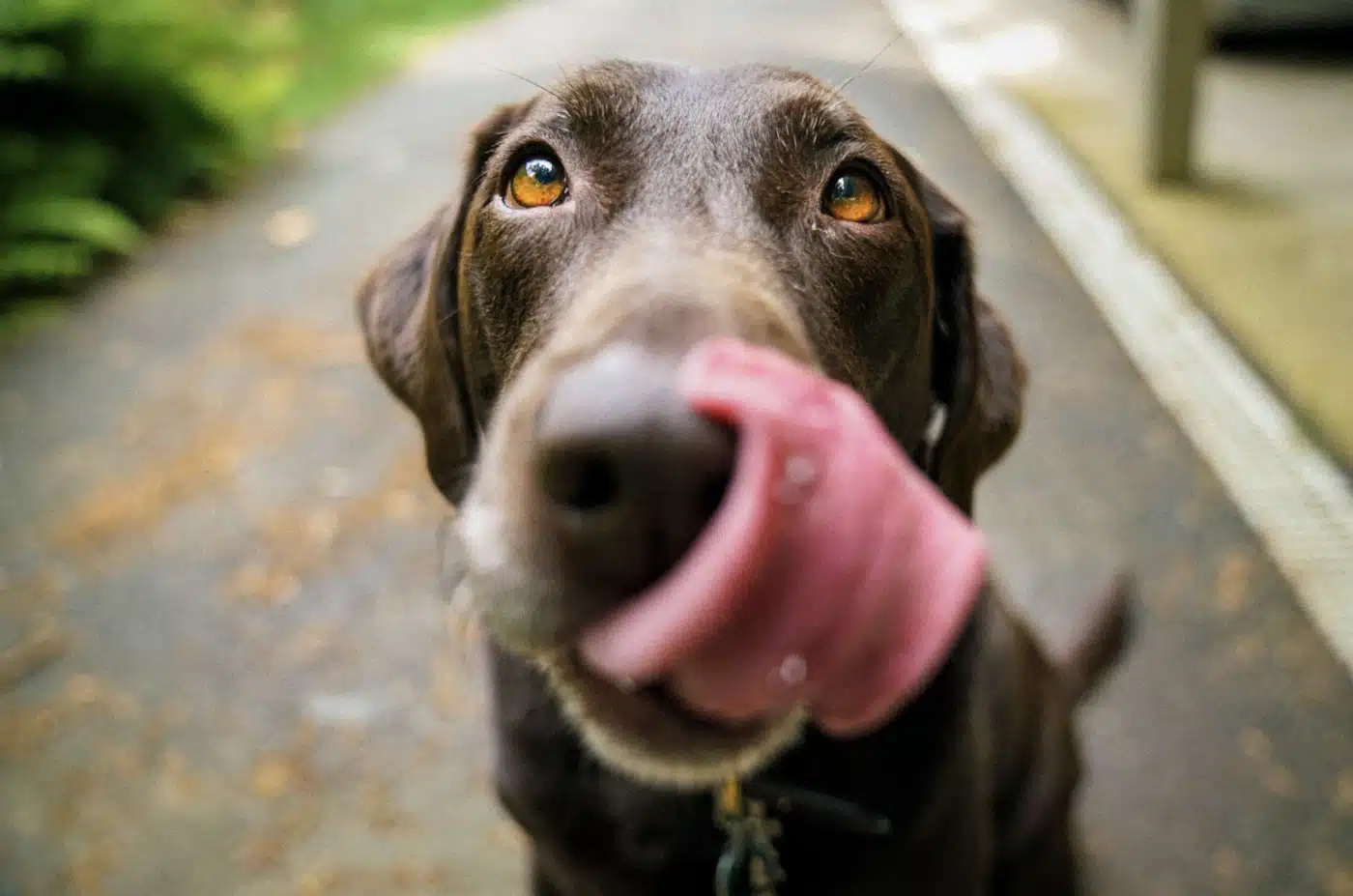 Shutterstock
Shutterstock
Dogs often display behaviors that leave their owners puzzled, and one of the more peculiar ones is when they seem to lick the air for no obvious reason. While dismissing this as a harmless or quirky action might be easy, there’s usually more behind it than meets the eye—or the tongue. Dogs lick the air for various reasons, and it’s not always about catching scents or tasting something in the environment. Understanding this odd habit, from medical concerns to behavioral triggers, is essential for ensuring your dog’s well-being.
Stress or Anxiety
 Shutterstock
Shutterstock
One of the most common reasons dogs lick the air is due to stress or anxiety. Much like humans may bite their nails or tap their fingers when anxious, dogs have their own coping mechanisms, and licking the air can be one of them. This behavior is often referred to as a displacement behavior—something the dog does to relieve tension or stress when they’re uncertain or uncomfortable. For example, if a dog is in a new environment or hears loud noises like fireworks, they may lick the air to soothe themselves. Recognizing this behavior as a stress signal is crucial for helping your dog feel more secure.
Gastrointestinal Issues
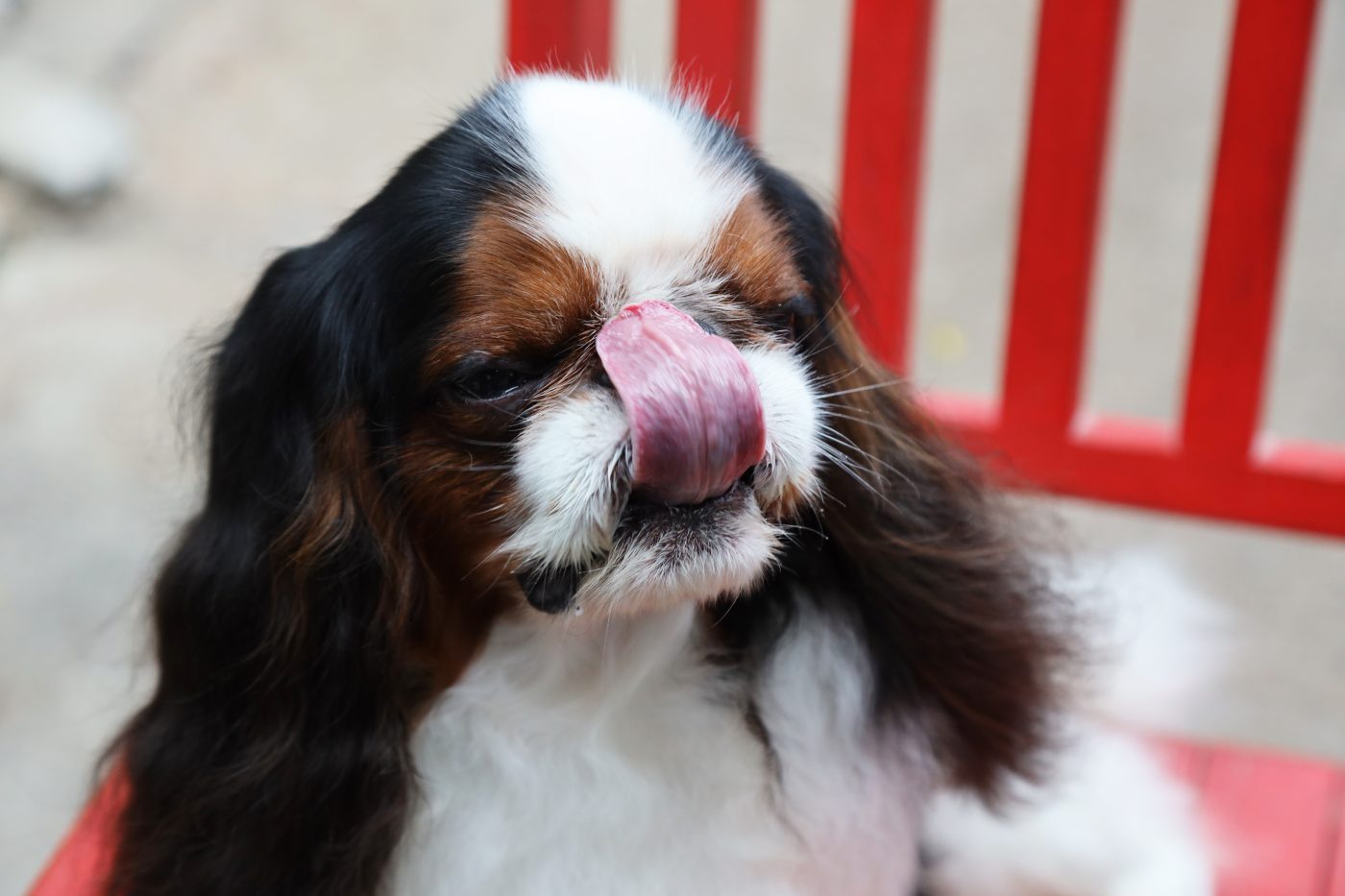 Shutterstock
Shutterstock
Sometimes, air-licking can indicate that your dog is experiencing gastrointestinal discomfort. Dogs with nausea, acid reflux, or other stomach-related problems might lick the air to cope with discomfort in their digestive system. If your dog’s air-licking is accompanied by signs such as vomiting, drooling, or lack of appetite, it’s important to consult a veterinarian to rule out any gastrointestinal issues. Dogs may also lick the air in response to an upset stomach caused by something they ate or an underlying condition like pancreatitis.
Dental Problems
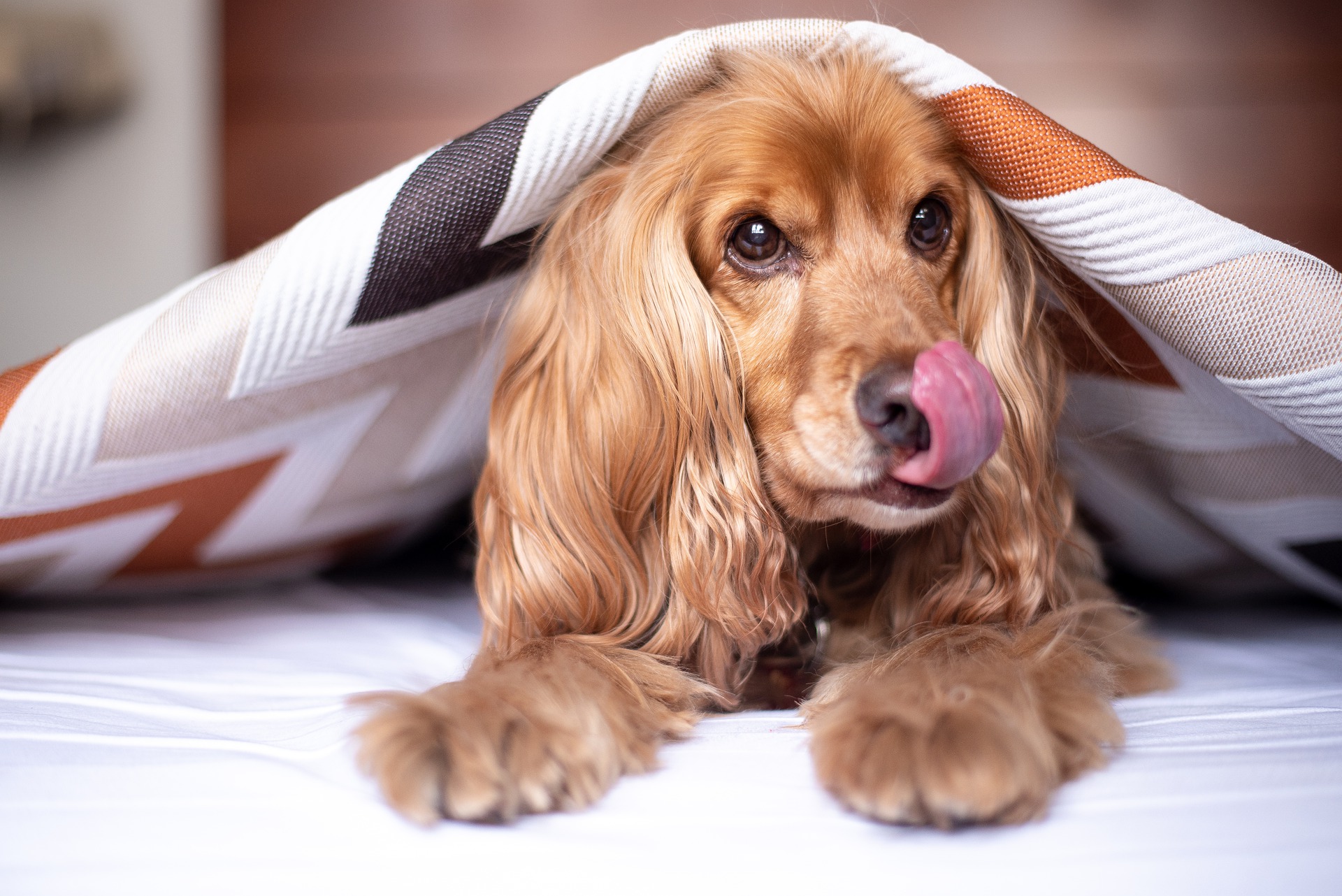 Shutterstock
Shutterstock
Just like humans, dogs can suffer from dental issues that might prompt strange behaviors like air-licking. If a dog has tooth pain, gum disease, or an oral infection, licking the air may be a reaction to the discomfort they’re feeling in their mouth. If your dog’s air-licking occurs primarily after eating or while chewing, it might be a sign that something is wrong with their dental health. Regular dental check-ups, teeth cleanings, and monitoring for signs of oral discomfort can help prevent this behavior and keep your dog’s mouth healthy.
Seizure Activity
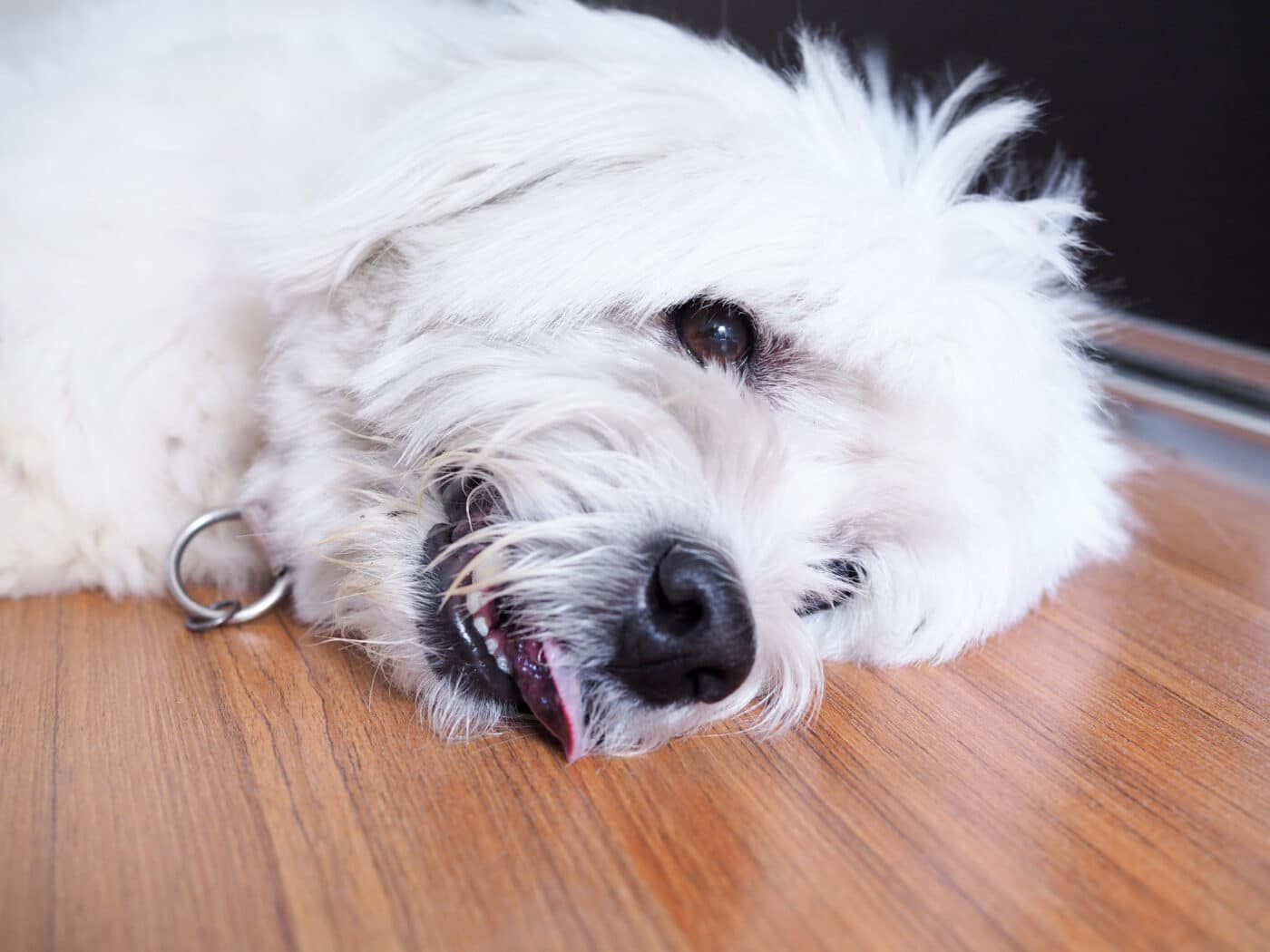 Shutterstock
Shutterstock
In more serious cases, air-licking can be a sign of a neurological issue such as a focal seizure, also known as a partial seizure. Dogs experiencing a focal seizure may lick the air as part of the seizure’s effects on a specific part of the brain. These seizures may be brief and isolated, making it easy to mistake the behavior for something less significant. If your dog’s air-licking is accompanied by other unusual symptoms, such as zoning out, muscle twitching, or abnormal eye movements, it’s crucial to seek veterinary care to determine if seizures are the cause.
Seeking Attention
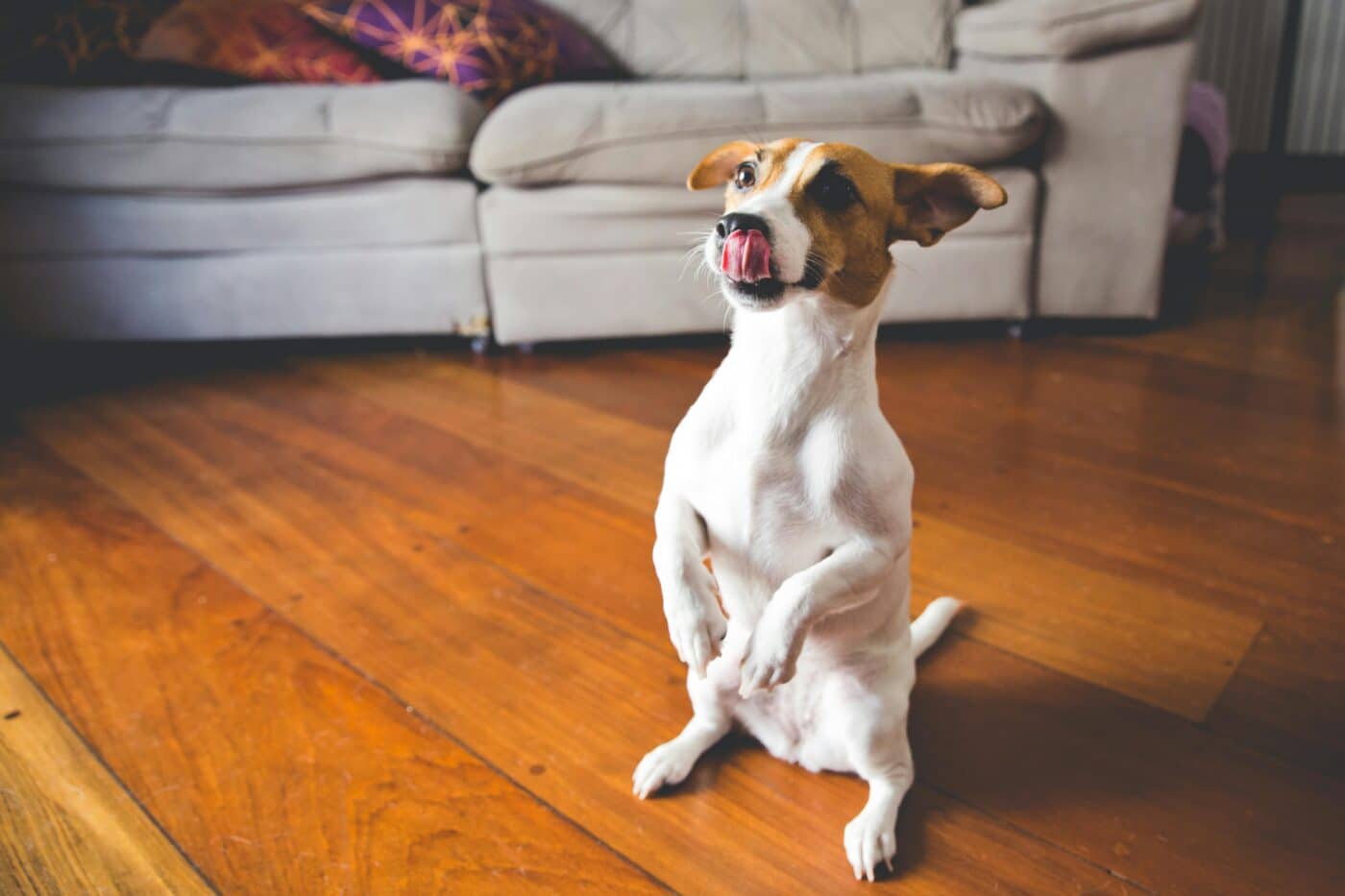 Shutterstock
Shutterstock
Dogs are masters of getting their human’s attention, and some may learn that licking the air prompts a reaction from their owner. Whether you laugh, scold them, or try to figure out what’s happening, dogs quickly learn that this behavior leads to interaction. For dogs that crave attention, especially those that may not get enough mental or physical stimulation, air-licking can become a way to engage with their owners. It’s important to ensure your dog has enough daily exercise, playtime, and mental enrichment to prevent them from developing attention-seeking habits.
Compulsive Behavior
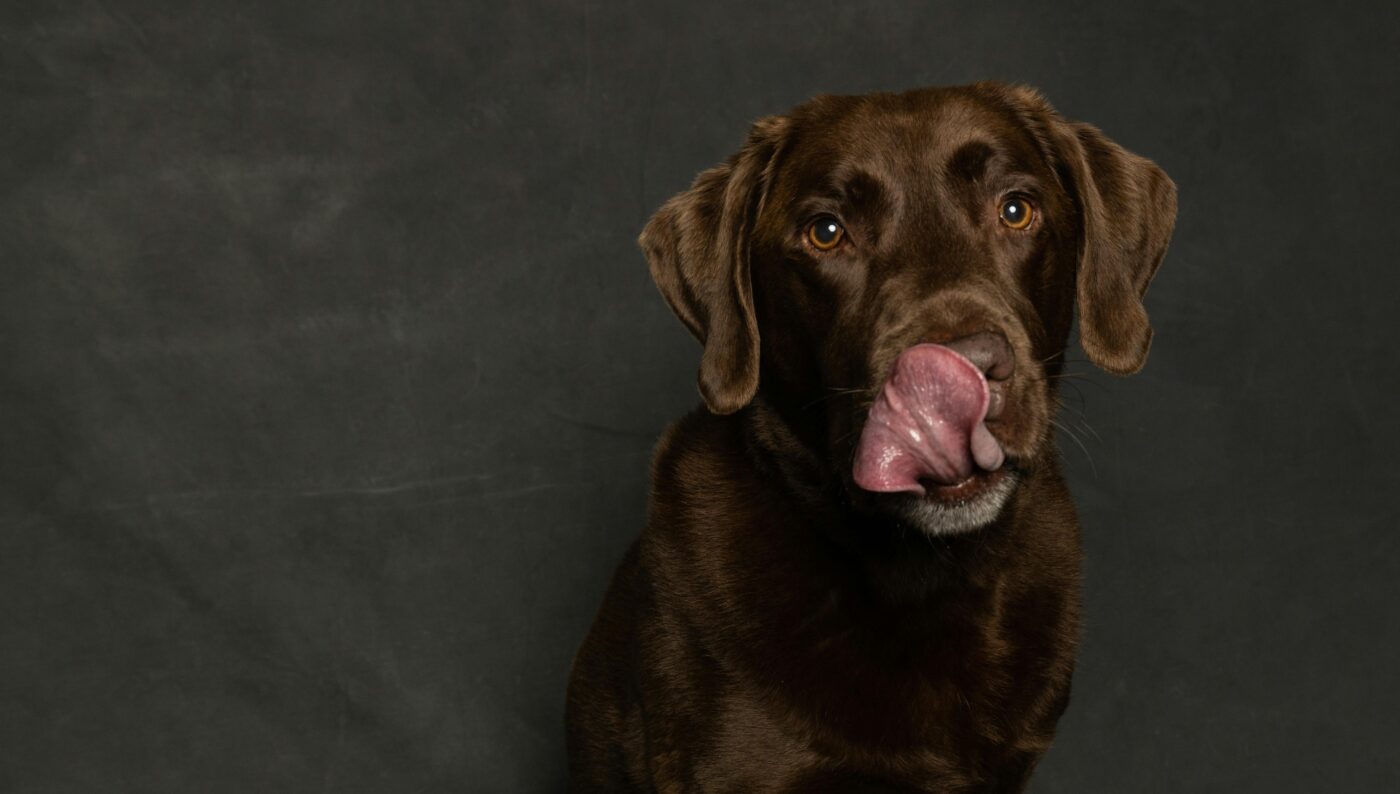 Shutterstock
Shutterstock
Some dogs develop compulsive behaviors, and licking the air can be one of them. Compulsive behaviors in dogs are often triggered by boredom, stress, or a lack of proper mental stimulation. Over time, the repetitive act of licking can become a habit that the dog finds difficult to break. Compulsive air-licking might occur when the dog feels anxious or overstimulated, which may escalate if not addressed. If your dog’s air-licking seems excessive and ongoing, it’s essential to consult with a veterinarian or animal behaviorist to develop a plan for managing this behavior.
Fleas, Allergies, or Skin Irritation
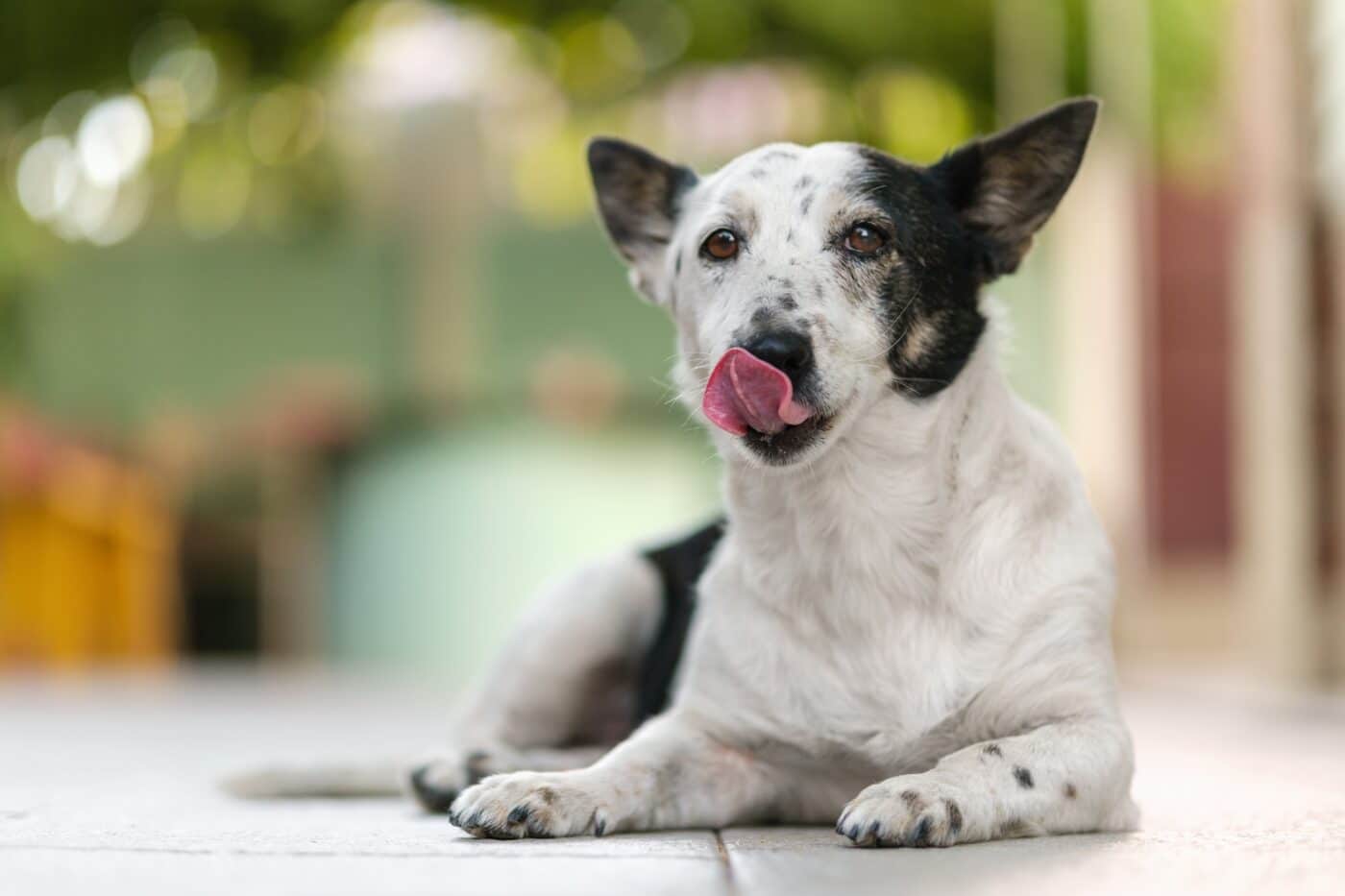 Shutterstock
Shutterstock
Dogs may also lick the air if they are dealing with skin irritations caused by allergies, fleas, or other irritants. Licking the air may be how they react to the itching or discomfort they feel, particularly if the irritation is around their mouth, nose, or face. This behavior is often accompanied by other signs, such as scratching, rubbing their face on surfaces, or biting their fur. If you suspect allergies or skin issues, it’s best to consult your vet to determine the cause and explore treatment options, such as medicated shampoos or flea treatments.
Cognitive Dysfunction in Older Dogs
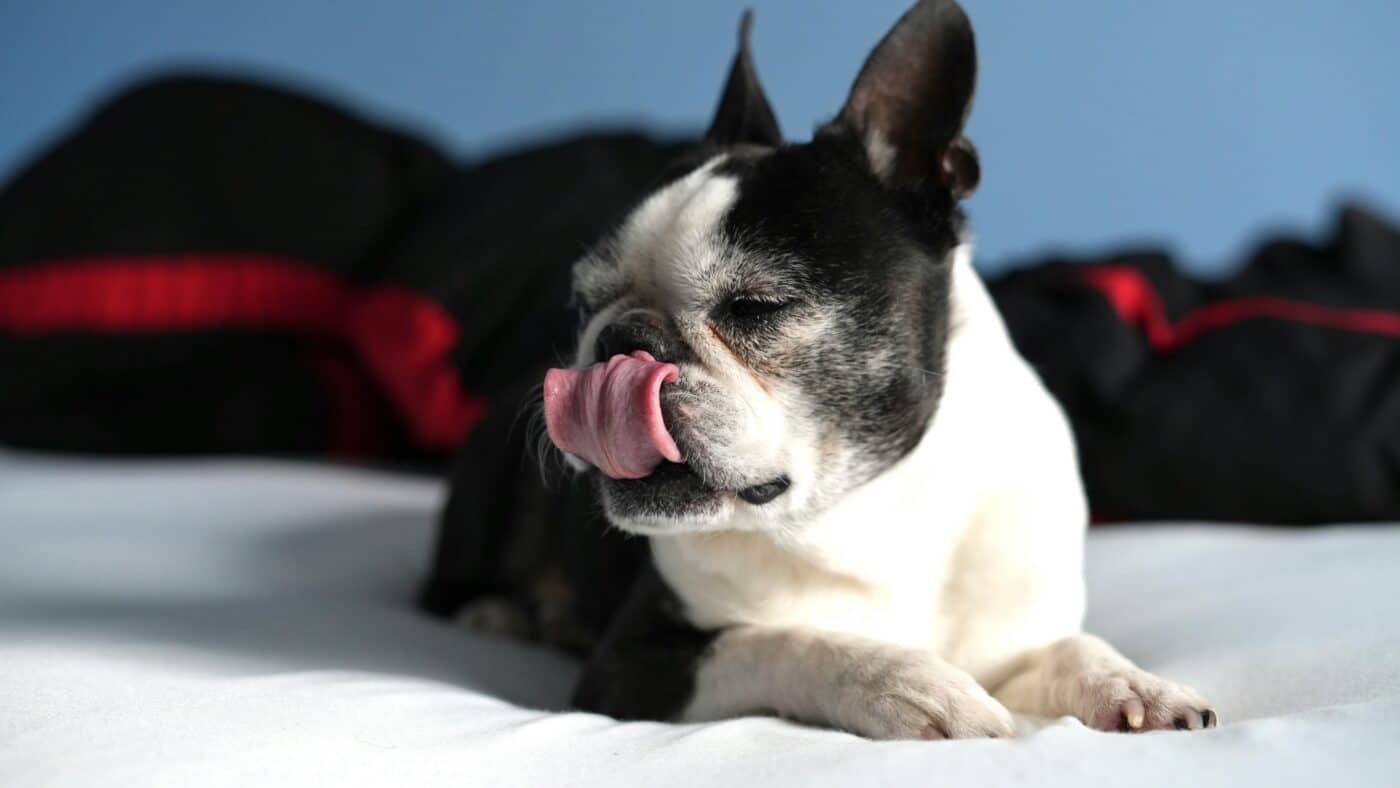 Shutterstock
Shutterstock
As dogs age, some may develop cognitive dysfunction, a condition similar to dementia in humans. Dogs with cognitive dysfunction may show signs of confusion, disorientation, and abnormal behaviors, including licking the air. This behavior may be more frequent in senior dogs, especially if they seem lost or unsure of their surroundings. If your older dog has started licking the air more often, it may be worth discussing cognitive dysfunction with your veterinarian. While there is no cure, there are treatments and strategies that can help improve your dog’s quality of life as they age.
Scent or Taste Detection
 Shutterstock
Shutterstock
Dogs have an incredible sense of smell, and sometimes air-licking is simply a way for them to “taste” a scent. Dogs have an organ called the Jacobson’s, located on the roof of their mouth, allowing them to process scents through licking. When a dog licks the air, they might be picking up on something we humans can’t detect, such as food aromas, pheromones, or environmental scents. This behavior is typically harmless and part of how dogs explore their surroundings, but it’s always good to observe when and where it happens to rule out other causes.
Dry Mouth
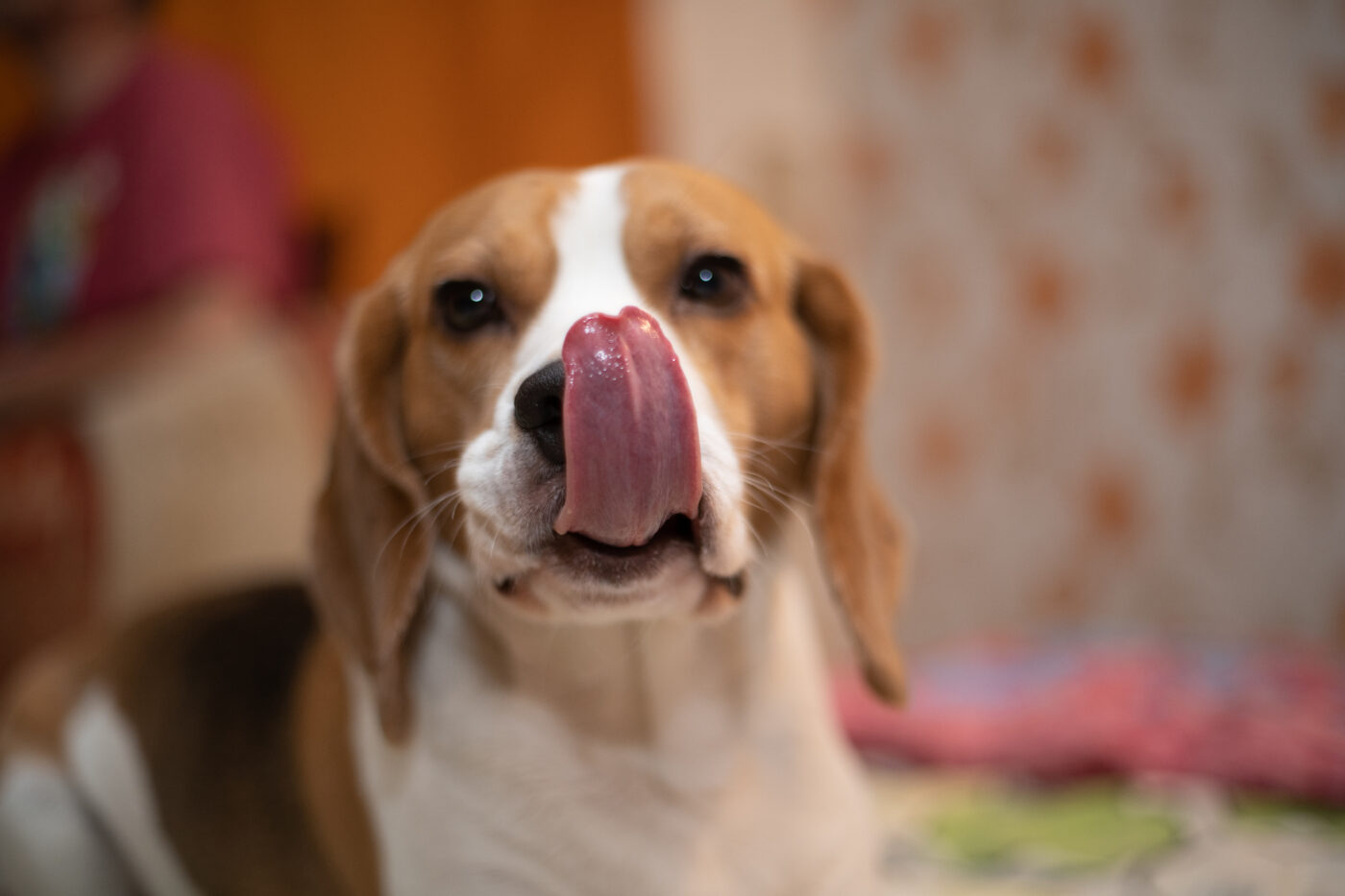 Shutterstock
Shutterstock
Another common reason dogs lick the air is that they’re experiencing dry mouth. Dogs with dry mouth, or xerostomia, may lick the air to stimulate saliva production. Dehydration, certain medications, or underlying health problems can cause this condition. If your dog is licking the air frequently and also seems to be drinking more water than usual or has a dry nose and gums, they may be dealing with dry mouth. In this case, increasing their water intake and speaking with your vet about possible solutions can help alleviate the issue.
Hunger or Anticipation of Food
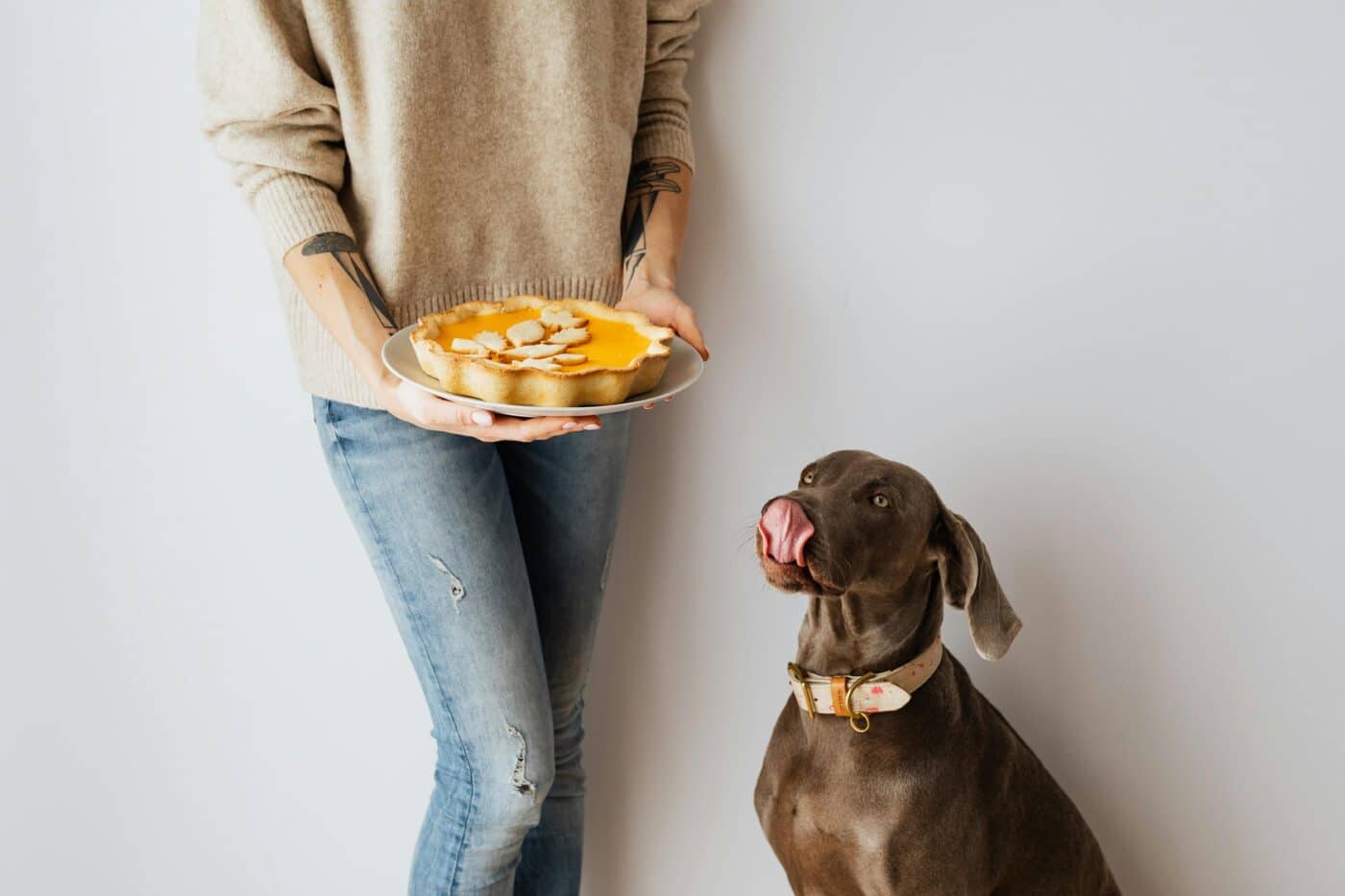 Shutterstock
Shutterstock
Dogs may also lick the air when they are hungry or anticipating food. Just like humans might salivate at the smell of something delicious, dogs may lick the air when they’re excited about mealtime. This behavior often occurs when they know food is coming or when they pick up the scent of food. While this type of air-licking is usually harmless, it can be a good reminder to establish regular feeding times and ensure your dog’s dietary needs are being met.
Medication Side Effects
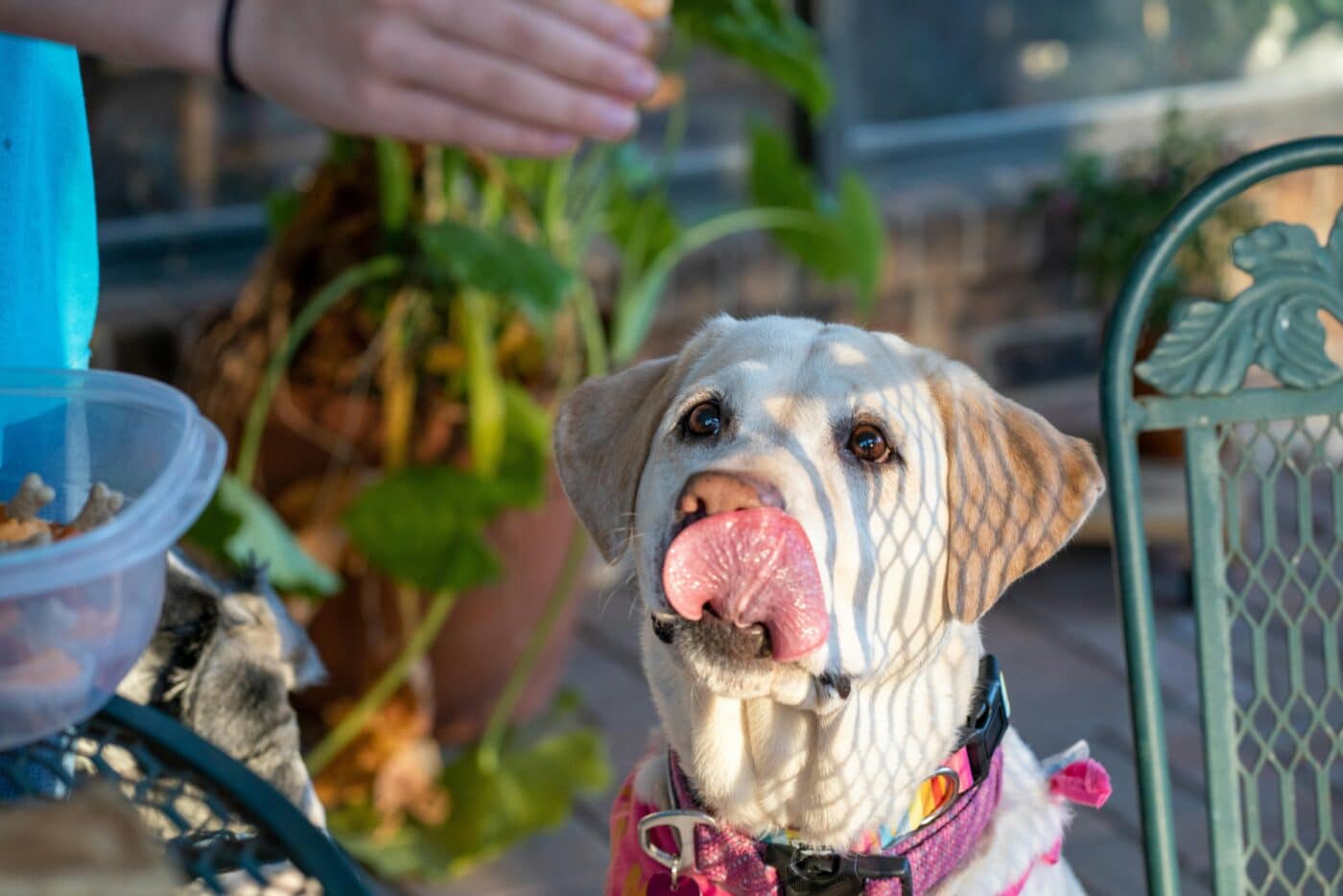 Shutterstock
Shutterstock
If your dog has recently started licking the air after beginning a new medication, the behavior could be a side effect. Certain medications can cause dry mouth, nausea, or other sensations that might prompt a dog to lick the air. If you suspect this is the case, consult with your veterinarian to discuss the medication and whether an adjustment or alternative treatment is needed. It’s important to monitor any changes in your dog’s behavior after starting a new medication to ensure they’re not experiencing uncomfortable side effects.
The Tongue-Twisting Truth About Air Licks
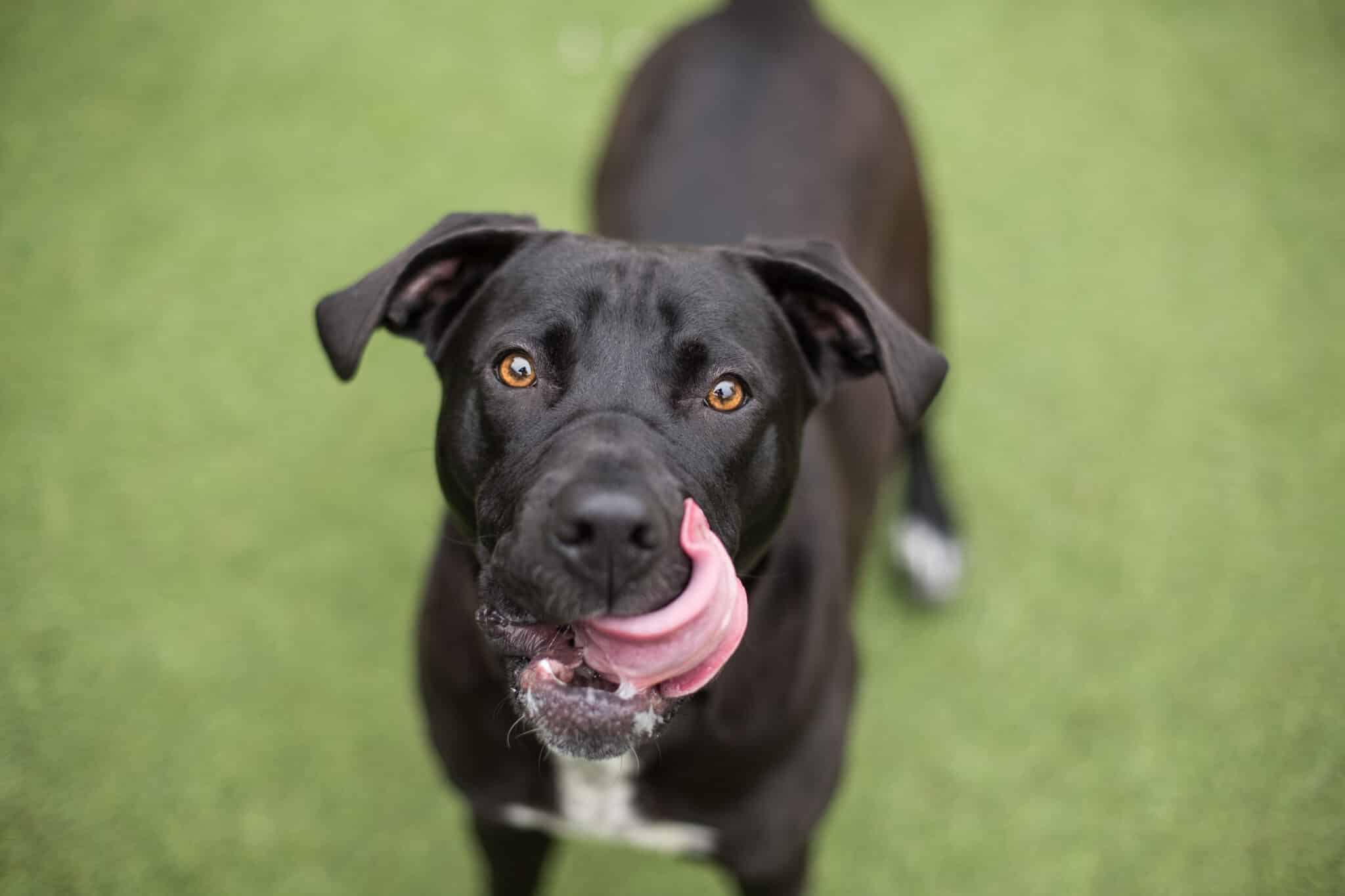 Shutterstock
Shutterstock
Although it might seem like your dog is just licking the air to taste something, this behavior often has deeper causes. Air-licking can signal various underlying concerns, from medical issues like dental problems or gastrointestinal discomfort to behavioral reasons such as stress or attention-seeking. Understanding why your dog engages in this behavior is essential for addressing it and ensuring their well-being. Whether it requires a vet visit, more mental stimulation, or routine adjustments, paying attention to your dog’s air-licking habit can lead to a healthier, happier dog.

 1 month ago
19
1 month ago
19
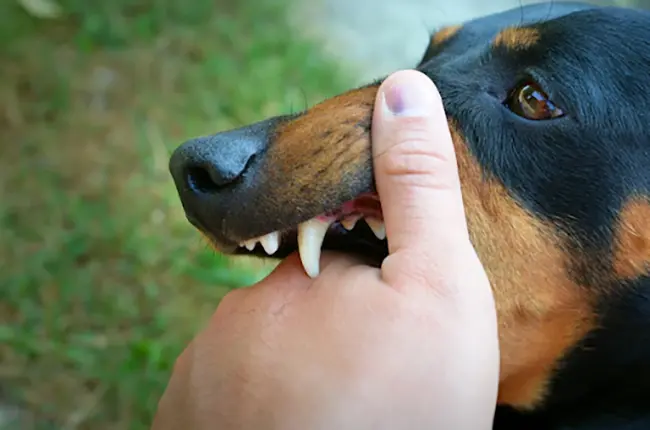
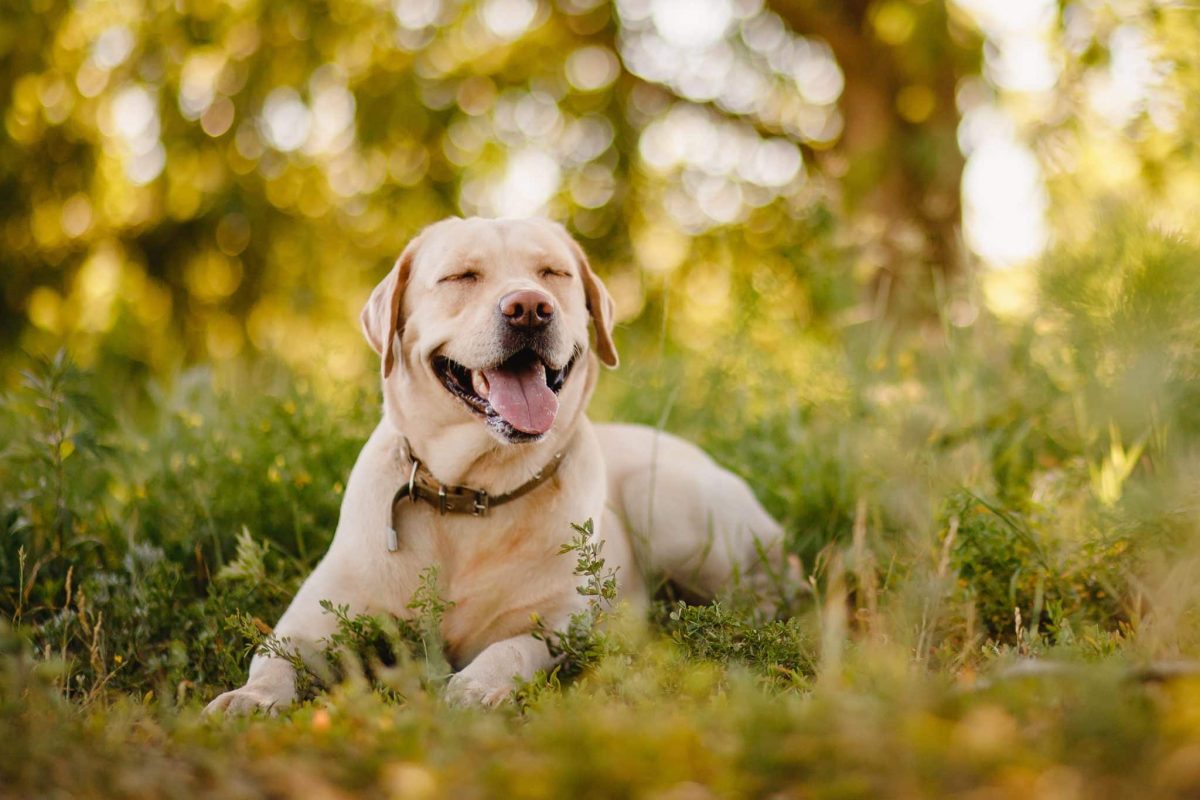
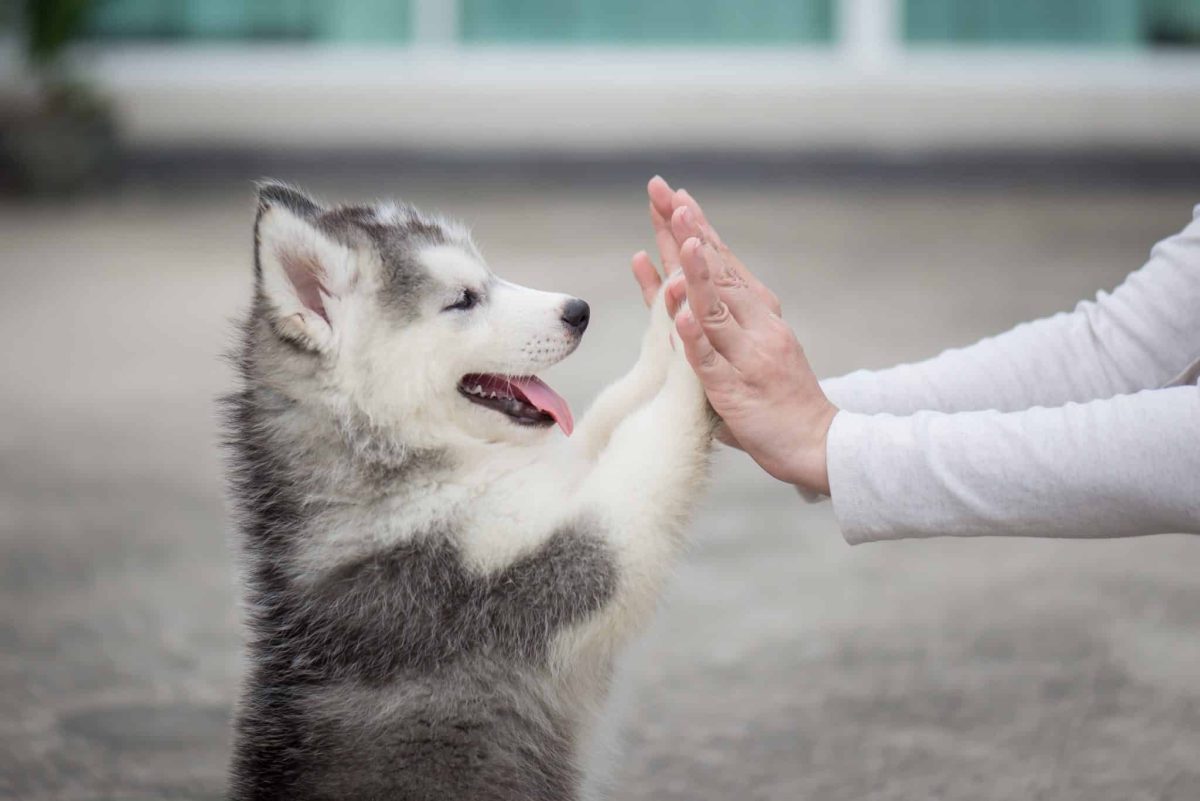
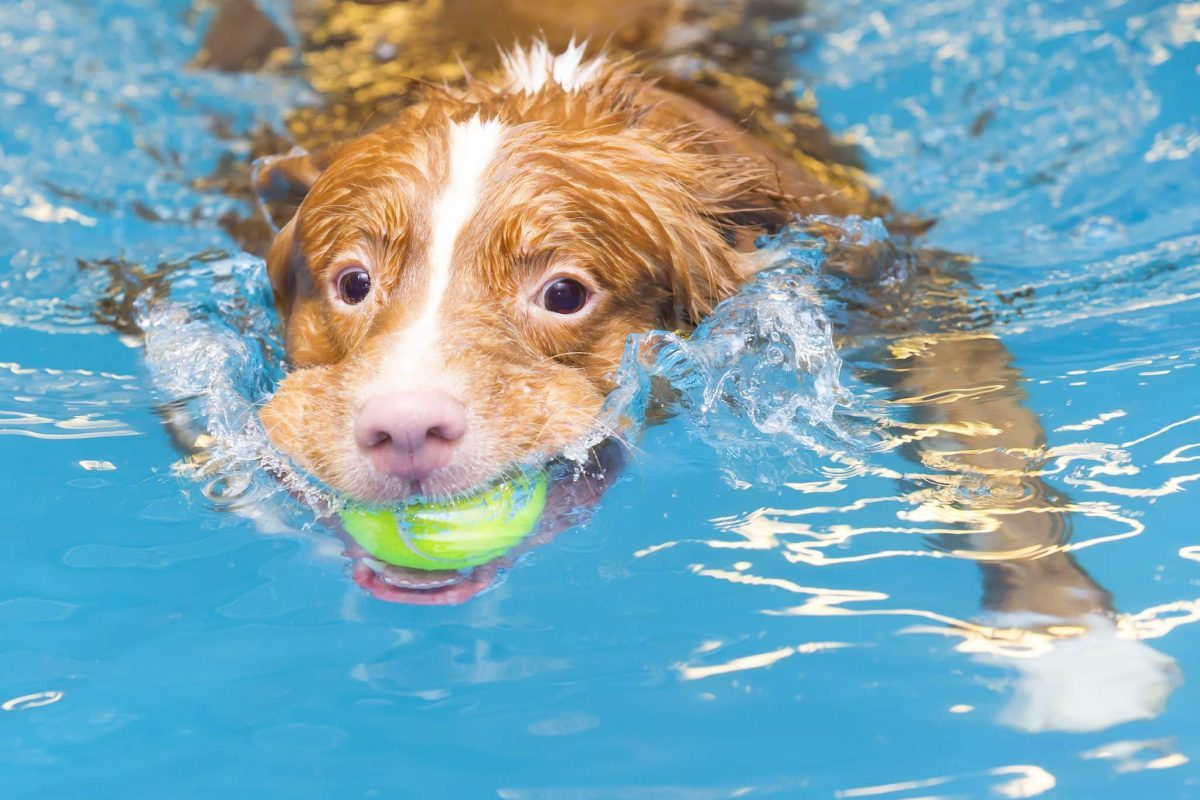
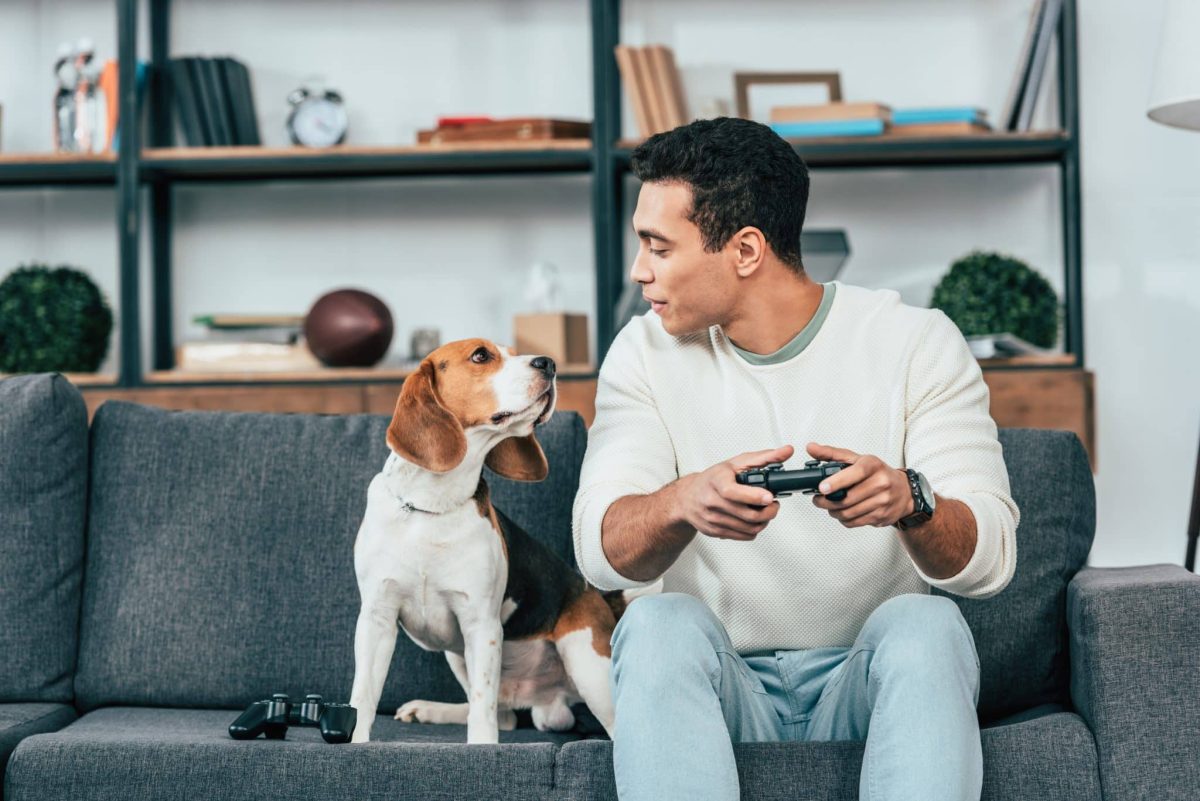
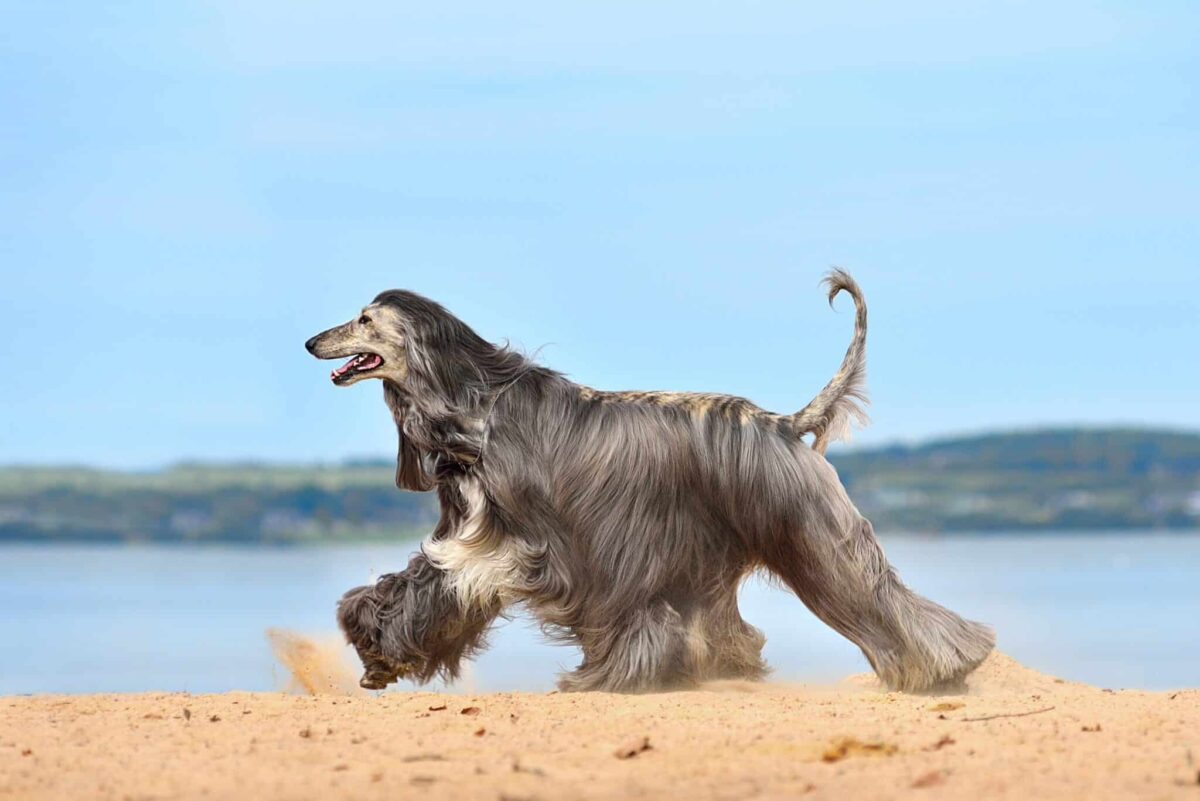
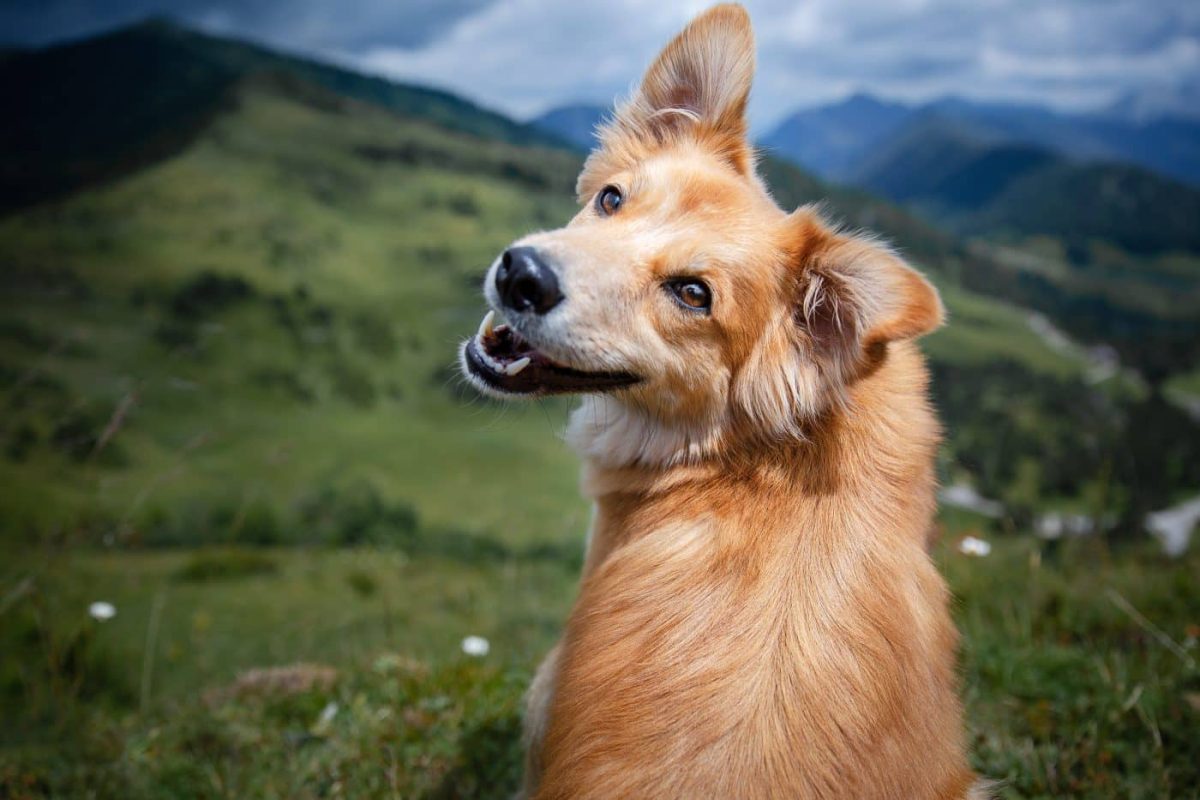
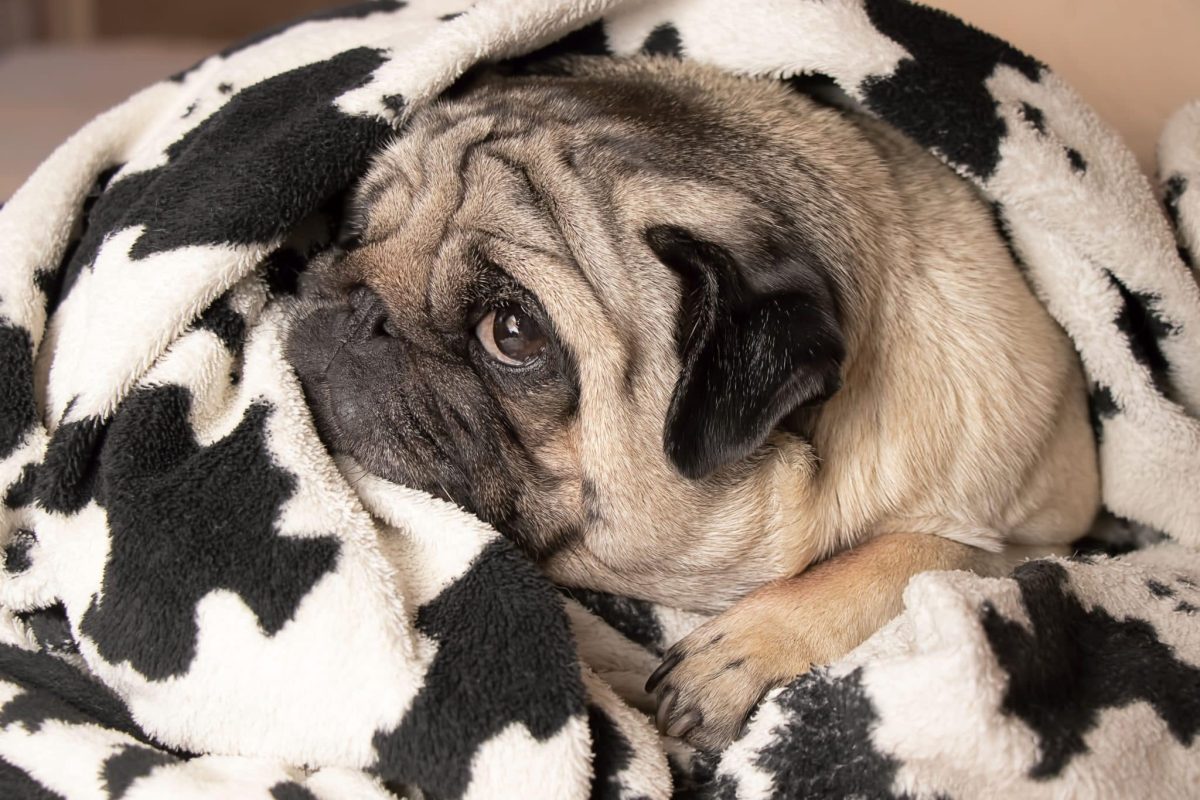
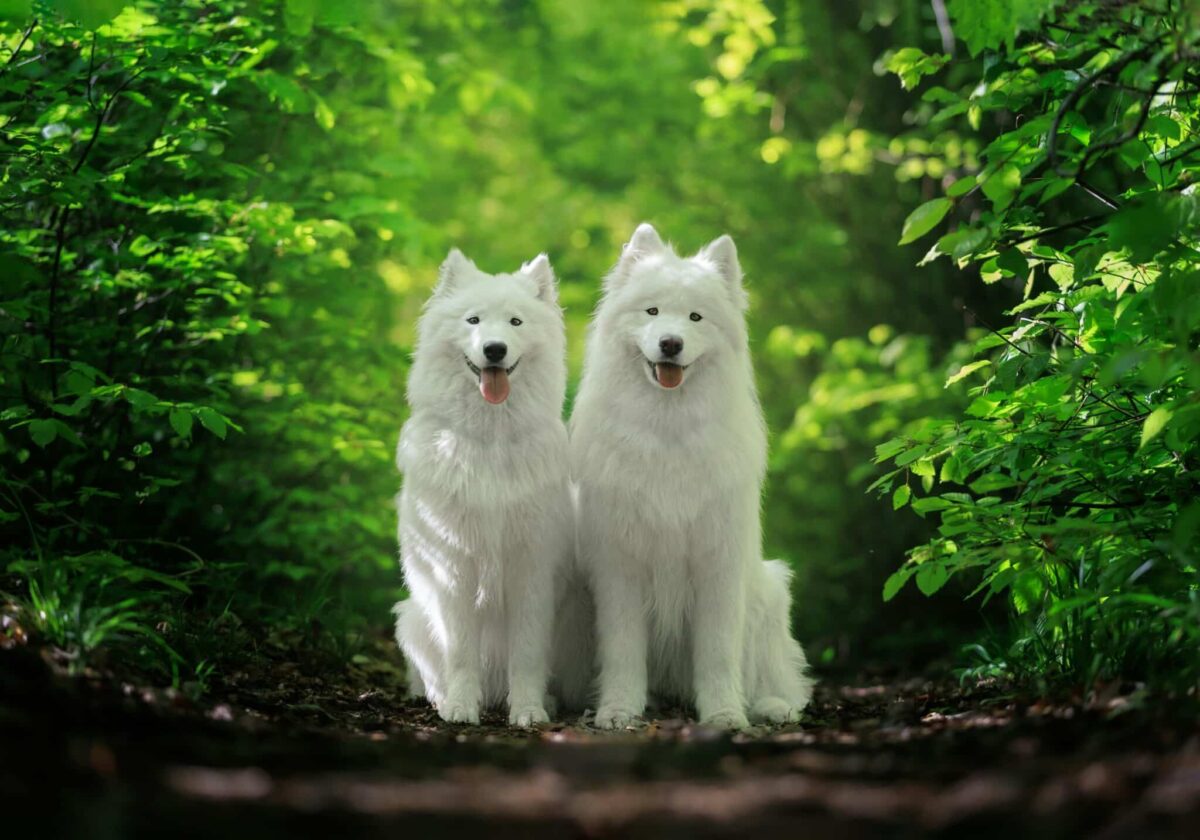
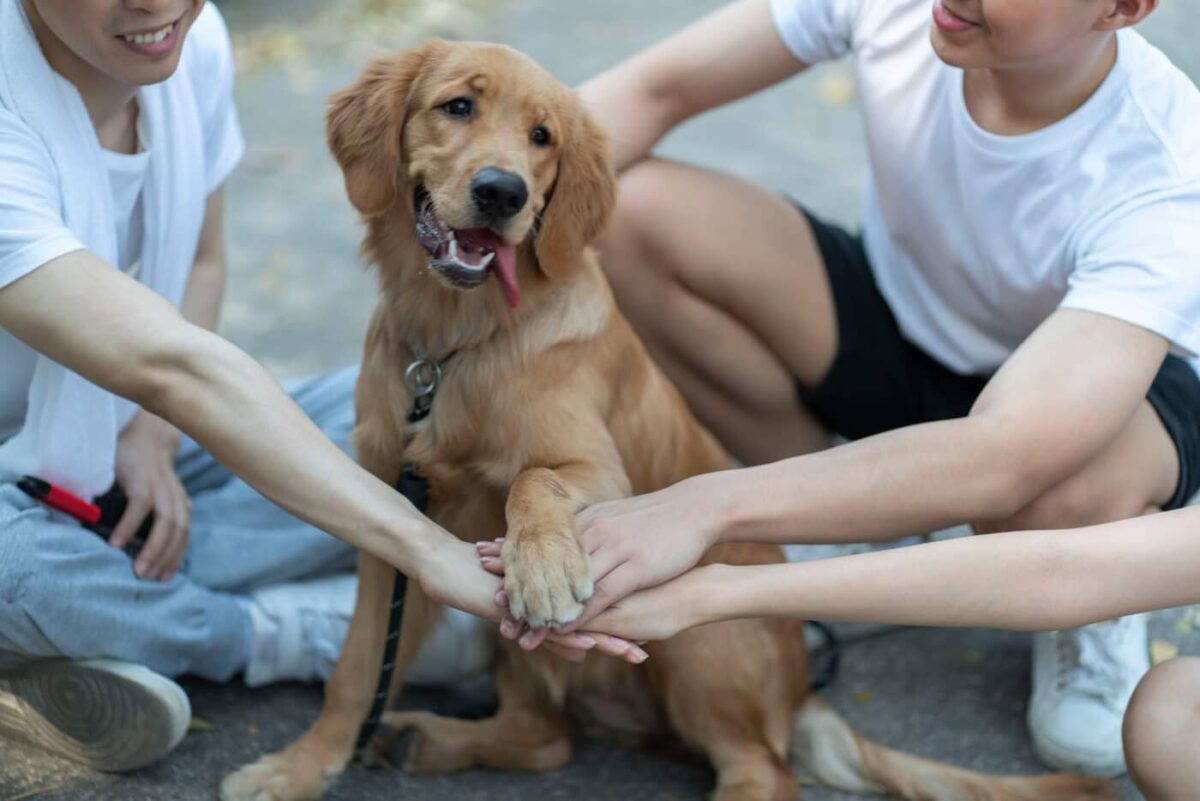
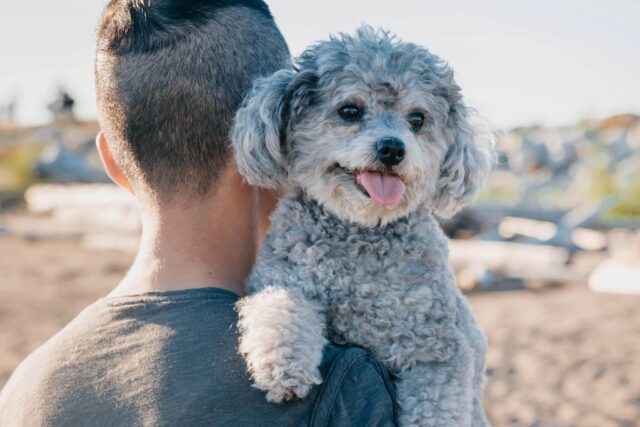
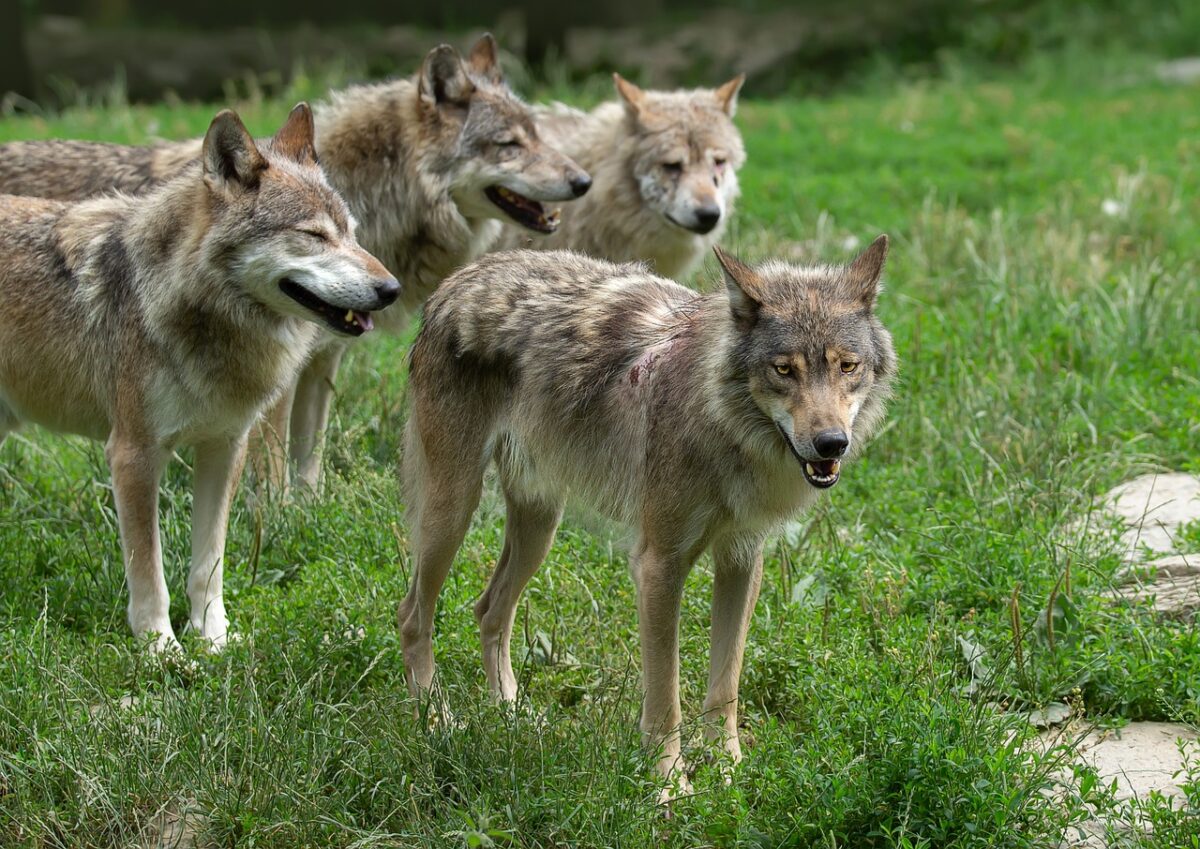
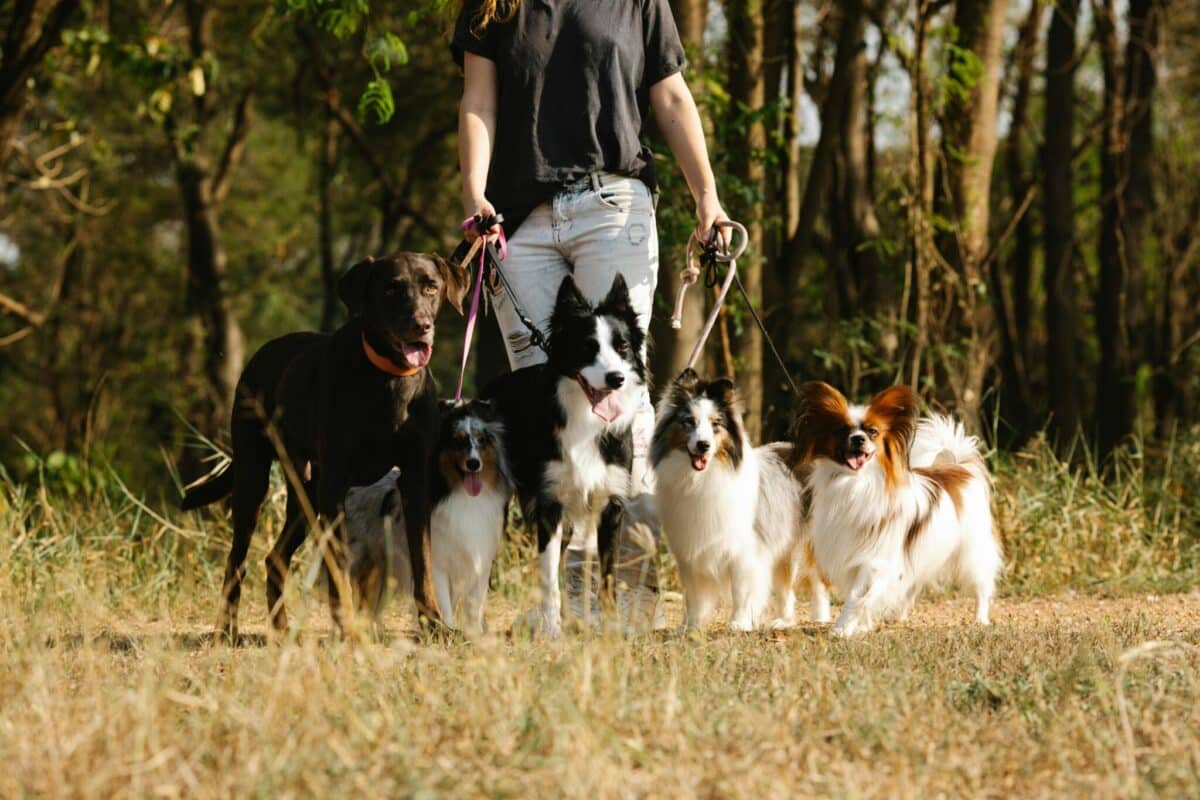
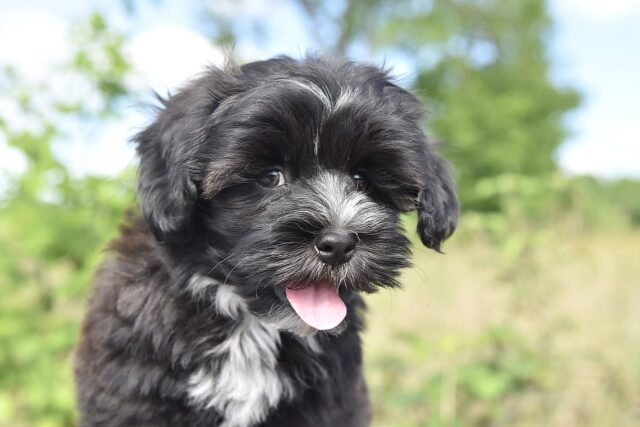
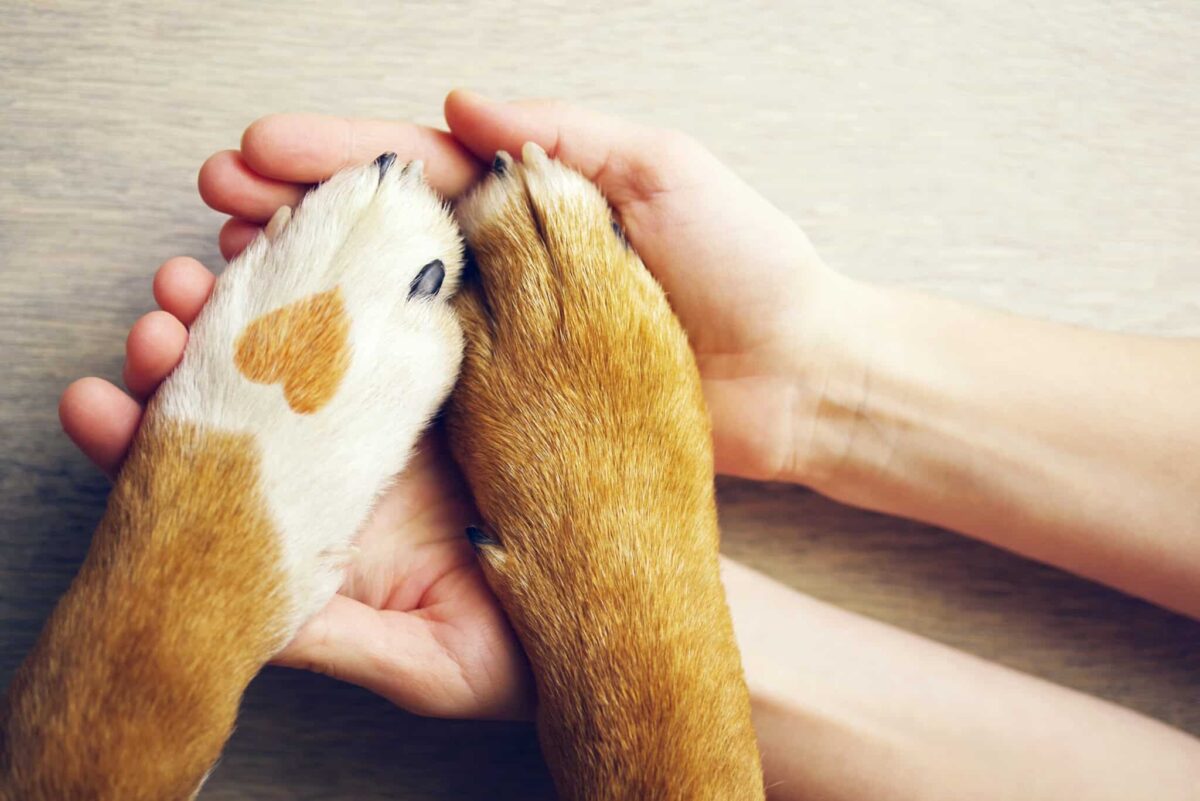

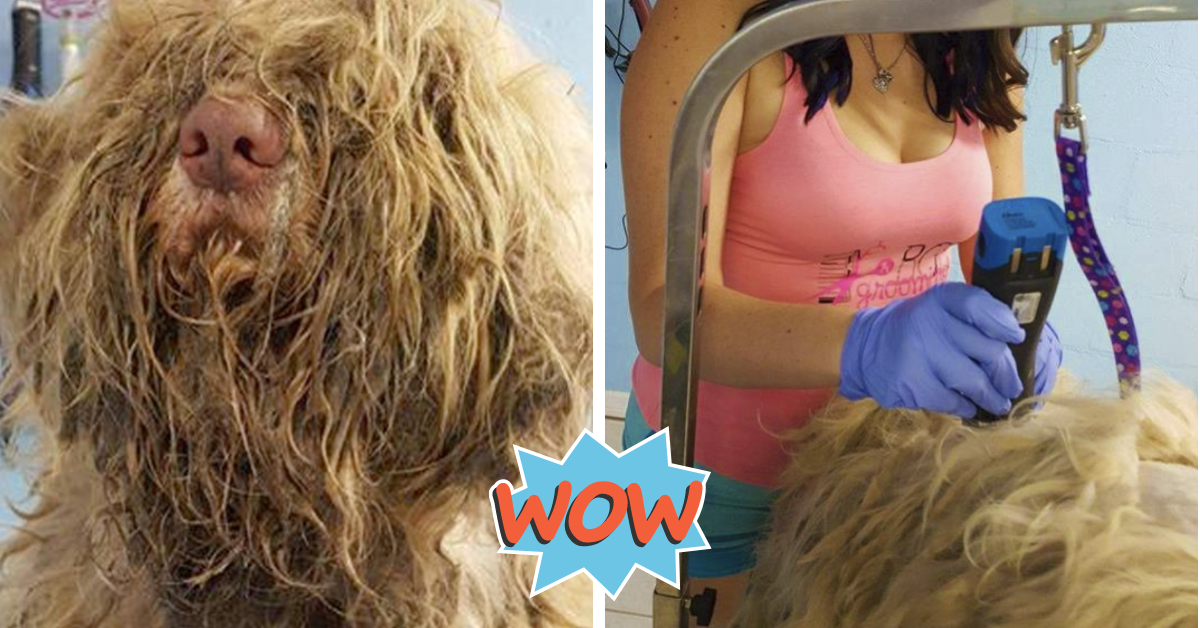
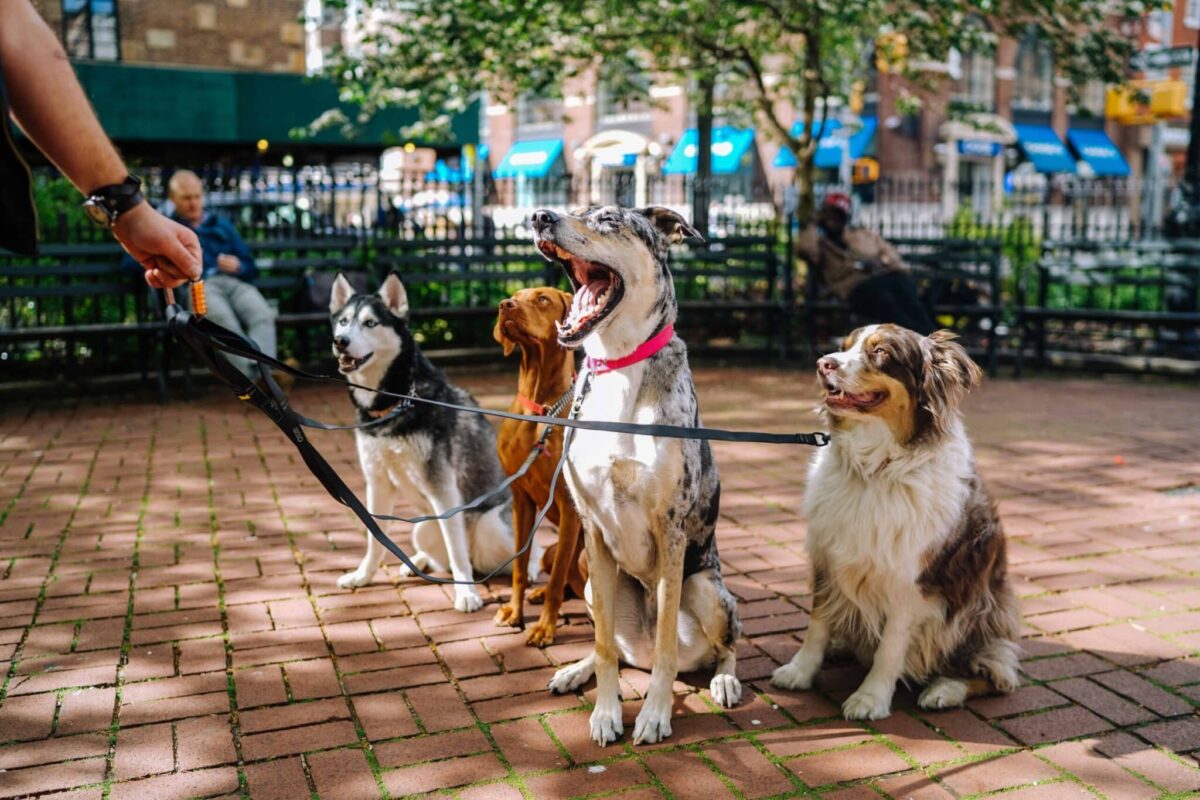
 English (US) ·
English (US) ·